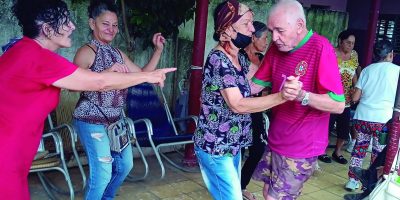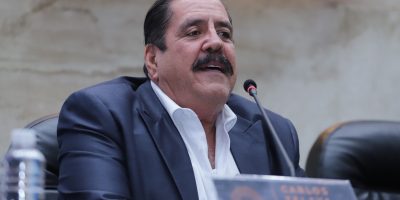
Seven months have passed since Kim Jong-un declared the “two-state narrative.” During this time, North Korea has denied the concept of a unified Korean nation (removing related terms and symbols), carried out irrational sewage terrorism against South Korean citizens, and openly and covertly supported Putin’s war against peace on the international stage.
Last month North Korea invited Putin to Pyongyang, effectively restoring military alliance relations and agreeing on comprehensive cooperation in various fields. The country also convened the 10th Plenary Session of the Eighth Central Committee of the Workers’ Party (June 28-July 1) to discuss and decide on a broad outline for future policy directions.
However, recent trends suggest that North Korea’s leadership may be slowing down somewhat where it once appeared to be accelerating rapidly. Notable examples include: 1) the failure to convene the Supreme People’s Assembly; 2) Kim Jong Un’s on-the-spot direction of tourism industry construction zones; 3) the mixed use of Kim Jong Un and Kim Il Sung/Kim Jong Il insignia; 4) Kim Yo Jong’s increasingly blatant threats against South Korea; and 5) a series of defections by overseas diplomats.
Failure to convene the Supreme People’s Assembly
Typically, after the conclusion of a party plenum, the Supreme People’s Assembly is convened to provide legal and institutional support for the conclusions of the plenum. However, there is no evidence of 1) any movement toward elections for the Supreme People’s Assembly deputies whose five-year terms expired last March; or 2) a single meeting of the current 14th Party Congress. Only news of subsequent local party and cabinet plenary meetings to discuss follow-up measures has surfaced.
The issue of constitutional revision (including “explicitly stating new national borders”) is an urgent one, as Kim Jong Un reiterated at the party plenum in late June that “the Standing Committee of the Supreme People’s Assembly should amend the socialist constitution and further enhance the dignity of the state,” following similar statements at the party plenum late last year and the Supreme People’s Assembly earlier this year.
However, the continued postponement of the Supreme People’s Assembly, which has the power to enact laws, including the constitution, and to approve organizational and personnel matters, is a notable phenomenon. This suggests that North Korea has not yet completed a comprehensive review of issues with profound implications, such as the finalization and declaration of borders based on the “two-state narrative” and subsequent measures.
Kim Jong Un’s unusual economic inspection tour
Kim Jong Un’s main destinations this year have been in the military sector, primarily to promote the production of military equipment for the development of various new missiles and the smuggling of conventional weapons to Russia. However, his recent pivot to inspecting projects in the civilian economic sector, such as large-scale construction projects in Samjiyon (Yanggang Province) and Wonsan-Kalma District (Kangwon Province), is noteworthy.
Samjiyon and Wonsan-Kalma District were top priority projects that Kim Jong Un, who studied in Switzerland, pursued after taking power to create new economic development models. However, these development projects had stagnated due to prolonged sanctions over nuclear and missile development and border controls due to COVID-19.
Kim Jong Un conducted a two-day on-site inspection at Samjiyon beginning July 11, taking disciplinary measures against relevant officials, including the vice premier and minister of state construction supervision, for “ideological laxity and dereliction of duty,” in an effort to double the pace of construction. On July 16, during his inspection of the Wonsan-Kalma Coastal Tourism Project District, he emphasized the construction of a “world-class premium coastal tourism city” and set the goal of “opening in May next year.”
These trends are likely to be influenced by a combination of factors: 1) the current situation, in which nuclear and missile development goals have been somewhat achieved; 2) the transition to full North Korea-Russia relations (promises of support for needed materials such as high-end interiors and the dispatch of large numbers of tourists upon completion); and 3) signs of former U.S. President Trump’s possible return. Going forward, this shows Kim Jong Un’s will to overcome immediate sanctions and economic hardships through the tourism industry, along with the construction of 50,000 homes in Pyongyang and the “20×10 regional development policy.”
“Comrade Kim Jong-un said that the Mt. Baekdu Tourism and Culture District, which will surely be opened in the near future, will be a tourist destination that will bring a unique charm to friendly foreign friends as well… Considering that our country borders the sea on both the east and west sides and has many beautiful scenic spots on the east coast, including Mt. Kumgang, Mt. Chilbo, Majeon, Kumya, Riwon and Yeombunjin, the tourism sector should focus on the rational utilization of the abundant coastal tourism resources in the future.” (Published in the Korean Central News Agency on July 14 and July 18)
In the future, Kim Jong Un is expected to use these independent tourism promotion policies as ways to promote the legitimacy of his “two-state narrative” by completely differentiating it from Kim Il Sung’s and Kim Jong Il’s policies based on inter-Korean cooperation (joint development through South Korea’s budget and technical assistance).
Mixed use of Kim Jong Un badges and Kim Il Sung/Kim Jong Il badges
The 10th Plenary Session of the Eighth Central Committee of the Workers’ Party was a decisive turning point in the efforts to promote the independent deification of Kim Jong Un. This is because all the participants wore “Kim Jong Un badges” instead of the so-called “double portrait badges” with portraits of Kim Il Sung and Kim Jong Il.
However, recent photos of the activities of officials such as Prime Minister Kim Tok Hun and Party Organization Secretary Jo Yong Won show them wearing the “double portrait badges” and sometimes the “Kim Jong Un badges. This indicates that 1) North Korea is adjusting the pace of sole idolization of Kim Jong Un; 2) it is dispelling the suspicion of erasing the previous generations; and 3) it is part of a process of gradually increasing Kim Jong Un’s authority. All of this may be a “tactic of official succession and subtle differentiation.”
Kim Yo-jong’s blatant threats against South Korea
On July 16, Kim Yo Jong again raised the issue of North Korean defector groups sending out leaflets and threatened, “You should be prepared for a miserable and terrible price. If the dirty deeds of these South Korean scum continue, a change in our method of response will inevitably be raised.” In response, North Korea carried out its eighth sewage balloon attack on July 18 and sent another sewage balloon on July 21 in response to the South Korean military’s resumption of loudspeaker broadcasts after 39 days.
For Kim Jong Un’s “two-state narrative” to gain legitimacy and momentum, an external enemy, South Korea, is essential. Therefore, for the time being, North Korea will continue its provocations with an appropriate level of force and restraint. However, in the summer, the southeast wind blows mainly to the north. The weather conditions are not suitable for North Korea to launch sewage balloons. However, the upper air currents change frequently. When suitable weather conditions develop, the country may conduct high-impact sewage terrorism in areas such as Seoul airspace or Incheon Airport, while also considering online and offline gray zone provocations (terrorism in densely populated facilities, computer network crippling, etc.). This is the so-called “tactic of instigating South-South conflict by creating fear of war.”
Series of defections by overseas diplomats
Recently, there has been a steady stream of defections of North Korean diplomats (and their families) from countries such as Cuba, France, and China. Diplomats 1) have a more worldly consciousness than ordinary citizens; 2) are well aware of the status and activities of fellow diplomats who have defected previously, such as former diplomat Thae Yong-ho in South Korea; and 3) decide to defect considering the possibility of execution upon recall or the future of their children.
Especially recently, there has been great discontent and fear due to North Korea’s complete denial of nationhood and reunification based on the “two-state narrative” and public punishment (including the recall of overseas students for re-education) of young people who watch and distribute Korean Wave content.
Conclusion
Recently, some in South Korea have talked about the early collapse of the North Korean regime due to abnormal signs such as internal confusion caused by Kim Jong Un’s two-state narrative, poor economic performance, extreme punishment for watching Korean Wave visual content, and various undercurrents of resistance in society.
It is true that at this turning point in its internal and external situation, North Korea has increased factors of instability. We need to use these vulnerabilities in more diverse ways to bring about change in North Korea. However, we should refrain from directly linking these phenomena to signs of regime collapse. This is because Kim Jong Un is moving forward with his own plans (challenges and pace adjustments), including the two-state narrative, the conclusion of a treaty between North Korea and Russia, the sole idolization of Kim Jong Un and increased control over society, the policy to increase tourism, and the 20×10 regional development policy. If necessary, he can use the South Korean provocation card to manipulate the situation.
Rather, what we should pay attention to in recent North Korean developments is Kim’s public call for the “opening of the Wonsan-Kalma Coastal Tourism District in May next year.” This suggests that Kim’s eyes are shifting from nuclear and missile advancement to revitalizing the tourism industry (economy), and to the inauguration of a new U.S. administration in January 2025, the 80th anniversary of the founding of the Workers’ Party in October, and on to the Ninth Party Congress (January 2026, although it could convene earlier).
As U.S. President Biden has given up his bid for the next Democratic presidential nomination, we should note that Trump, whose chances of winning in November appear to have increased, presented Kim with a “blueprint for North Korea’s development” at the June 2018 U.S.-North Korea summit in Singapore. In his recent acceptance speech for the Republican nomination, Trump insisted that he got along well with Kim, saying, “It’s good to get along with somebody who has a lot of nuclear weapons. When we get back, I will get along well with Kim Jong Un. He will probably want to see me and I think he will miss me.”
Therefore, the Yoon Suk Yeol government should prepare countermeasures by considering various scenarios related to responses to visible and tangible provocations such as sewage balloon terrorism, North Korea’s surprise online and offline provocations aimed at maximizing public anxiety and national division, and the expected attitudes of North Korea and neighboring countries after the U.S. presidential election (including how to respond to North Korea’s serious efforts to attract tourism). This is a time when preventive security efforts and immediate responses are more important than ever.
Please send any comments or questions about this article to [email protected].















